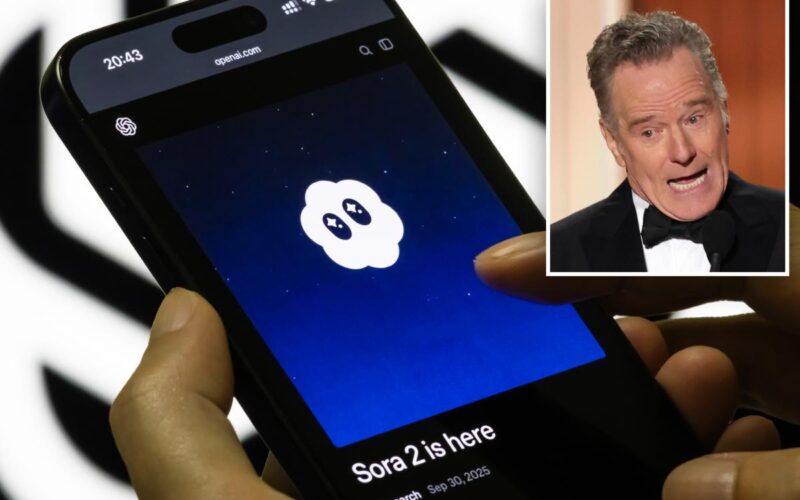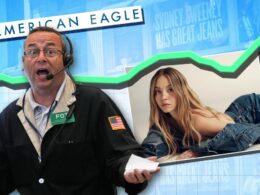Sam Altman’s OpenAI said it will crack down on unauthorized deepfakes spit out by its Sora 2 text-to-video generator after complaints by “Breaking Bad” actor Bryan Cranston and other public figures.
A flood of realistic-looking, unauthorized deepfake videos hit social media sites after OpenAI launched the upgraded Sora 2 on Sept. 30. Cranston, 69, personally “brought the issue to the attention of SAG-AFTRA,” which pushed OpenAI to take action, the prominent actors’ union stated Monday.
“I am grateful to OpenAI for its policy and for improving its guardrails, and hope that they and all of the companies involved in this work respect our personal and professional right to manage replication of our voice and likeness,” Cranston added in the joint statement with the union and OpenAI.
OpenAI has been scrambling to address the concerns of critics who say Sora is misusing the voices and images of celebrities without proper credit or compensation.
Cranston recently popped up in a fake video that showed him talking a selfie with Michael Jackson.
Last week, the tech giant blocked users from creating deepfakes of Martin Luther King Jr. after his estate blasted what it described as “disrespectful depictions” of the late civil rights icon.
Zelda Williams, the daughter of the late actor Robin Williams, was previously forced to beg the public to stop using Sora to create deepfakes of the beloved comedian.
OpenAI says it has strengthened enforcement of an “opt-in” policy requiring public figures to give their permission before Sora can use their voices and likenesses in AI-generated videos.
The company has also “committed to responding expeditiously to any complaints” regarding potential violations going forward, according to Monday’s statement.
Hollywood talent agencies CAA and UTA – which earlier warned that potential infringement by Sora “exposes our clients and their intellectual property to significant risk” – also signed the statement, saying their talks with OpenAI have resulted in “productive collaboration.”
Altman reiterated his company’s support for the “NO FAKES Act,” federal legislation meant to block AI videos that depict individuals without their consent.
“OpenAI is deeply committed to protecting performers from the misappropriation of their voice and likeness,” Altman said in Monday’s statement. “We were an early supporter of the NO FAKES Act when it was introduced last year, and will always stand behind the rights of performers.”








